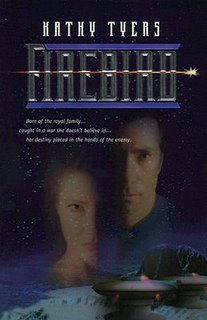
Normally I wouldn't read a mystery. It's just not my style. But there were several reasons why I read this one. For starters, I got it for free. Yes, I know, that's a lousy reason to read a book, but it was a definite factor. I got it when I registered at the ACFW conference along with a few other books in genres I normally don't venture into. As odd as it sounds, once I get a book, I tend to make sure to read it, even if I normally wouldn't, even if the experience isn't that good.
Not to worry, though, Violet Dawn by Brandilyn Collins was a joy to read. It had me hooked from the beginning, when poor Paige Williams finds a dead body in her hot tub, to the last page where ... well, you really don't expect me to give it all away, do you? I mean, if finding a dead body in your hot tub isn't enough to get you reading, then I don't know what will.
Honest to goodness, this book was in my hand just about every chance I had. When I was playing yet another game on Civilization IV, I had only one eye on the screen. As I was watching TV, I wasn't really paying attention, I was hip deep in Kanner Lake, trying to figure out what was going to happen to poor Paige. It really helped that Brandilyn kept the chapters short. Short chapters always sucker me into reading a book; I always wind up muttering, "Just one more, just one more."
What really got my attention, though, is that this book is a little different from other Christian fiction I've read. Most Christian fiction includes, for lack of a better term, a "come to Jesus" moment, where one of the non-Christian characters ... well, comes to Jesus. You know what I mean. Or, if that doesn't happen, the spiritual aspects of the story are basically right there in the foreground. I'm not saying that either of these things are bad. Given the way I write Christian fiction, I'd be a hypocrite to say that it was.
That's why Brandilyn's subtlety with Christianity was kind of a refreshing change. A few of the characters in the book are Christians. There is an over-all Christian theme to the book. But we're not beaten over the head with it. It made for a fun, breezy read.
So will I venture back to Kanner Lake? More than likely, I will. I mean, it was a great town to visit. I think it'd be fun to go back again.
Oh, and of course, I can't forget one of the main reasons why I read this book first (since I came back from ACFW with seven books). The reason is S-Man. A minor character in the book, but a really cool and awesome guy in real life. Stuart, thanks for letting a newbie tag along with you for so much of ACFW.










